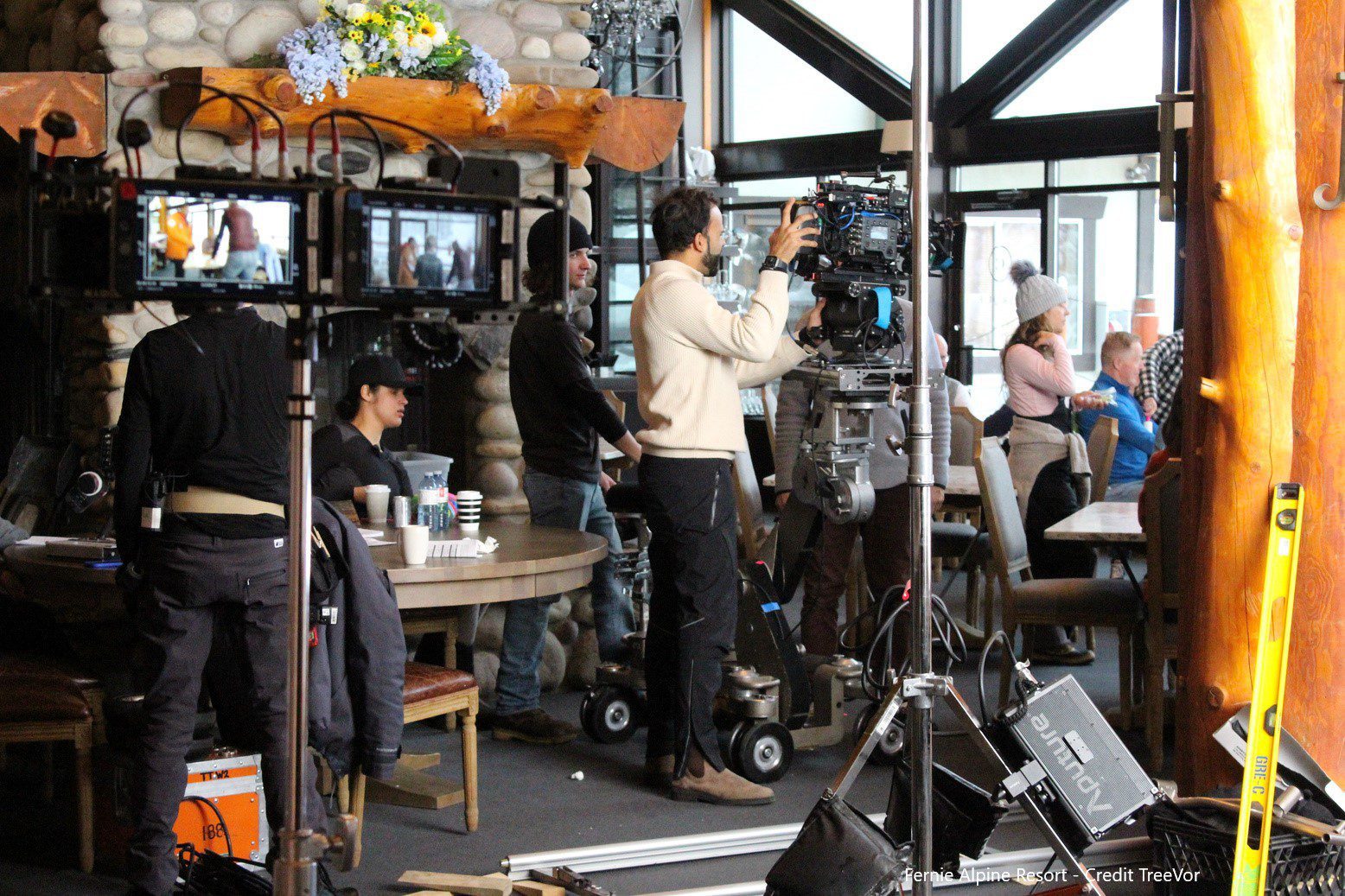The stage is set to advance film development in the Kootenays! Although the film sector is in its infancy in the Kootenay region, a feasibility study developed through Community Futures Central Kootenay (CFCK) shows the industry has significant potential to ramp up.
Historically, the Kootenays have experienced only a small percentage of the revenue generated by film production in BC. In 2020, for example, BC regional Film Commissions generated over $3.1 billion in direct economic impacts, of which only $18 million (0.6 percent) made its way to the Kootenays. Other factors such as streaming video services, AI, the 2023 actors’ and writers’ strike as well as the pandemic have also impacted the industry in recent years.
But the region has a rich culture and history around filmmaking dating back to the 1920s with some films gaining national and international attention. Between August 2021 and August 2022, 40 project files were opened for potential commercials, feature films, TV series, movies, documentaries, and music videos.
The Economic Trust of the Southern Interior (ETSI-BC) supported the project in 2023 through its Innovating and Advancing Key Sectors funding stream. “Film production is a significant growth industry that contributes towards economic sustainability and diversification, retains and attracts arts, culture and technology workers, and provides workforce education and training,” says Laurel Douglas, CEO of ETSI-BC. “With film industry infrastructure in place, a region can attract even more opportunities.”
ETSI-BC funding supported CFCK, the Nelson Theatre Society and the Kootenay Film Commission to undertake the study. Additional support was provided by Columbia Basin Trust, the Slocan Valley Economic Development Partnership, and the Nelson and Area Economic Development Partnership.
Optimizing Assets to Grow the Kootenay Film Industry
Building on previous film studies in other parts of the province including the Thompson-Okanagan, Ron LeBlanc, Economic Development Manager for the Slocan Valley, and John Wittmayer, Manager of the Kootenay Regional Film Commission were contracted to research and author the final report, Developing the Kootenay Regional Film Sector.
The study identified that driving distances between the Kootenays and areas with major film hubs as the greatest barrier for film producers. Affordable and available accommodation for crew members can also be hard to find in the Kootenays and transportation options are not always readily available.
The study identified that promoting the use of regional airports and local talent, equipment, gear, and infrastructure can help address concerns about driving distances. The study also noted potential solutions to accommodation needs such as short-term housing in homes and condos, and use of local college dorm rooms and ski resorts in off-seasons.
An important asset already in place is the database of 130 Kootenay film industry crew. If increased to 200, the crew could provide the critical mass that meets the general expectations of producers.
The study highlights other supports in place to create cross sector opportunities. The Kootenay Association for Science and Technology (KAST), for example, provides mentorship and business advisory services to technology entrepreneurs. A film-related hub of tech businesses could act as an incubator for industry specific business development. Expansion of film production incentives and funding to support Regional Film Commissions is also recommended.
Nelson Civic Arena Eyed for Regional Film Studio Location
A key recommendation is to explore the development of a regional film studio located at the Nelson Civic Arena. The arena is considered an under-utilized asset that could accommodate a film studio in the hockey off-season and generate funds for the City to help offset building maintenance costs. It could include a film sound stage, lighting grid, production offices and secure storage, with the potential to include a green screen set-up for educational and job training purposes in addition to use by film producers.
On completion of the feasibility study, the City of Nelson, with partners Nelson and Area Economic Develop Partnership and CFCK received a grant from the Rural Economic Diversification and Infrastructure Program (REDIP) to develop a film studio model including design plans and costs. A report will be completed in the fall of 2024 with elements transferable to other communities.
“This is an exciting time in the history of the regional film industry,” says LeBlanc. “We now have a clear path to creating a world-class filming hub and a stronger, more diversified economy in the Kootenays.”


